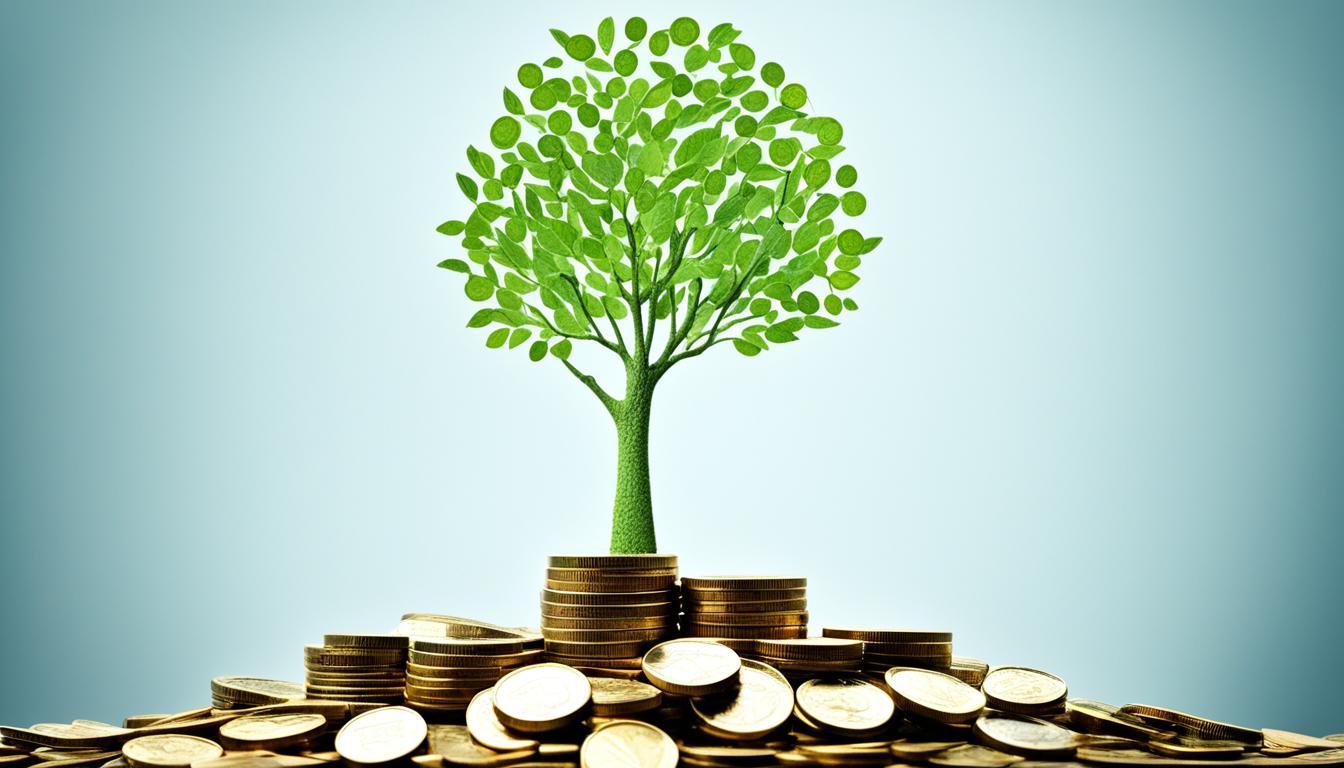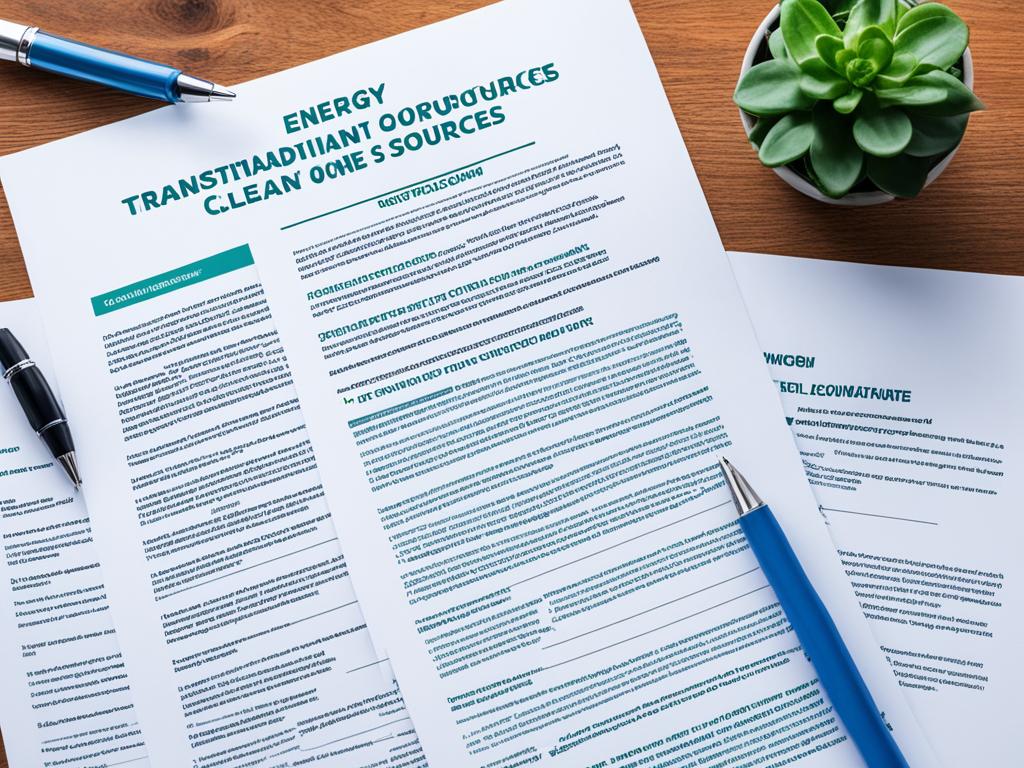Green financing is a vital tool in promoting environmental sustainability and driving positive change. To ensure the success of green finance initiatives and hold stakeholders accountable, robust legal frameworks need to be established. These frameworks can be shaped through changes in regulatory policies, incentives, and the promotion of public-private partnerships. Such measures align financial systems with the Sustainable Development Goals (SDGs) and direct financial flows towards environmentally beneficial projects.
Legal support plays a crucial role in shaping the regulatory framework for green finance. Policy reviews, the development of sustainable finance roadmaps, and assistance to central banks and regulators are essential in creating an enabling environment for green finance. Multi-stakeholder partnerships involving major actors in financial markets, banks, investors, micro-credit entities, and insurance companies, along with the public sector, are essential for the success of green financing efforts.
Key Takeaways:
- Legal frameworks are crucial for supporting green finance initiatives and ensuring accountability.
- Changes in regulatory policies, incentives, and public-private partnerships can enhance legal frameworks for green finance.
- Aligning financial systems with the SDGs directs financial flows towards environmentally beneficial projects.
- Policy reviews, sustainable finance roadmaps, and assistance to central banks and regulators are essential for shaping the regulatory framework for green finance.
- Multi-stakeholder partnerships involving financial institutions, investors, and the public sector are critical for the success of green financing efforts.
The Rise of Green Finance and the Role of Environmental Law Firms
Understanding Green Finance: From Concept to Implementation
Green finance has emerged as a powerful tool to drive sustainable development and address pressing environmental challenges. It encompasses various financial mechanisms and instruments that support projects with positive environmental impacts. Understanding the concept of green finance is essential for effective implementation and maximizing its potential for sustainable growth.
Green finance involves directing financial resources towards environmentally beneficial projects, such as renewable energy initiatives, energy efficiency improvements, and sustainable infrastructure development. It encourages private sector investment by aligning financial decisions with environmental sustainability goals. Mechanisms like green bonds, sustainable investments, and environmental funds have gained traction in mobilizing capital for green projects.
How Environmental Legal Services Facilitate Sustainable Development
Environmental law firms play a crucial role in navigating the legal complexities and ensuring compliance in the field of green finance. These firms provide specialized legal services tailored to the unique challenges and requirements of sustainability projects. Their expertise spans environmental regulations, corporate governance, risk management, and project financing.
Environmental legal services facilitate sustainable development by ensuring projects adhere to environmental regulations, meet sustainability standards, and mitigate potential risks. They assist clients in navigating the legal landscape, securing necessary permits and approvals, and addressing any legal issues that may arise during project implementation. Their involvement helps minimize legal risks, enhances project viability, and ensures compliance with environmental standards.
Case Studies: Environmental Attorneys Driving Eco-Innovations
Case studies highlight the instrumental role of environmental attorneys in driving eco-innovations through green finance initiatives. These attorneys leverage their legal expertise to pioneer sustainable practices, develop innovative financial products, and influence policy changes. Their efforts contribute to the advancement of green finance and promote sustainable development.
Case Study 1: Freshfields Bruckhaus Deringer
One notable example is the environmental law firm Freshfields Bruckhaus Deringer, which has been at the forefront of shaping the legal framework for green finance. Their team of experts has been instrumental in advising clients on sustainable investments, facilitating green bond issuances, and structuring impactful sustainability projects.
Case Study 2: Harvard Law School
Another prominent example is the Harvard Law School, where environmental law scholars and practitioners actively research and advocate for the integration of environmental considerations into financial decision-making. Through their work, they promote the role of legal frameworks in driving green finance and fostering sustainable development.
These case studies highlight the collaborative efforts of environmental attorneys, investors, policymakers, and other stakeholders in pushing the boundaries of green finance. Their innovative approaches and legal expertise pave the way for a more sustainable and environmentally conscious financial sector.
Alignment with Sustainable Development Goals Through Legal Support
Achieving the Sustainable Development Goals (SDGs) requires strong legal support to align financial systems with the environmental dimension of the goals. Legal frameworks play a crucial role in directing financial resources towards projects that contribute to sustainable development objectives. By incorporating the SDGs into financial decision-making, countries can ensure that green finance initiatives prioritize environmental sustainability and social impact.
Legal support, through policy review and the development of sustainable finance roadmaps, helps countries create an enabling environment for aligning financial systems with the SDGs and achieving sustainable development. By examining existing policies and regulations, legal experts can identify gaps and recommend changes to ensure better alignment with the SDGs. They can also provide guidance on incorporating environmental considerations into investment decisions and ensuring compliance with relevant laws and regulations.
The alignment with SDGs through legal support goes beyond domestic regulations. International cooperation and collaborations between countries are essential to drive progress towards the SDGs. Legal experts can facilitate the exchange of best practices and help establish global frameworks that promote sustainable finance across borders.
In summary, legal support plays a pivotal role in aligning financial systems with the SDGs. By developing and implementing robust legal frameworks, countries can direct financial resources towards projects that promote sustainable development and environmental protection. Legal experts are instrumental in providing guidance and recommendations to enhance the effectiveness of existing policies and create a conducive environment for green finance initiatives.
Public-Private Partnerships: A Legal Perspective on Financing Sustainability
Public-private partnerships (PPPs) play a crucial role in financing sustainability projects. These partnerships bring together the resources and expertise of both the public and private sectors to address environmental challenges and promote sustainable development. From a legal perspective, PPPs require robust frameworks to ensure accountability, risk-sharing, and effective governance.
Exploring the Mechanisms: Green Bonds and Beyond
Green bonds have emerged as a popular mechanism for financing sustainability. These bonds are specifically designated to fund environmentally beneficial projects, such as renewable energy infrastructure and energy-efficient buildings. Understanding the legal framework surrounding green bonds is essential for successful implementation. Legal experts play a vital role in ensuring compliance with regulations, verifying the green credentials of projects, and protecting the rights of bondholders.

Legal Solutions for Environmental Issues in Structuring Joint Ventures
In structuring joint ventures for sustainable projects, legal solutions are needed to address environmental issues and ensure compliance with regulations. Environmental impact assessments, environmental due diligence, and the inclusion of environmental provisions in partnership agreements are some of the legal mechanisms used to address these concerns. These solutions serve to mitigate risks, protect the environment, and establish clear roles and responsibilities among stakeholders.
Legal Solutions for Environmental Issues in Climate Change Strategies
Climate change strategies require effective legal solutions to address environmental issues. Legal frameworks play a crucial role in supporting climate change mitigation and adaptation efforts. These frameworks enable the establishment of renewable energy projects, the implementation of carbon pricing mechanisms, and the regulation of greenhouse gas emissions.
Environmental attorneys and legal experts play a vital role in developing and implementing these legal solutions. They possess the expertise to navigate the complex legal landscape surrounding climate change strategies, ensuring the success and effectiveness of these initiatives.
By working closely with policymakers, environmental attorneys contribute to the formulation and implementation of regulations and policies that promote sustainable practices and mitigate the impact of climate change. Their understanding of environmental issues, combined with their legal knowledge, allows them to effectively address challenges and develop solutions that are environmentally sound and legally compliant.

Through their expertise in climate change law and environmental regulations, attorneys assist in the development of robust strategies that foster sustainability and resilience. Their role is crucial in helping businesses, governments, and organizations navigate the legal complexities involved in climate change initiatives and comply with environmental requirements.
Legal solutions for environmental issues in climate change strategies provide the framework necessary to drive positive change and create a sustainable future. With the guidance of environmental attorneys, these solutions can effectively address the challenges posed by climate change and contribute to the preservation of our planet.
Legal Policies Shaping Green Investment and Environmental Regulations Compliance
Legal policies play a significant role in shaping green investment practices and ensuring compliance with environmental regulations. These policies provide guidelines and frameworks for financial institutions and investors to prioritize sustainability goals and make informed decisions regarding their environmental impact. By implementing legal policies that support green investment, countries can mobilize finance and drive positive environmental change.
Investor Duties and Legal Discretions
Investors have a crucial role in driving sustainable finance by considering the environmental impact of their investments. Legal frameworks outline the duties and discretions of investors, guiding them to prioritize sustainable projects and incorporate environmental considerations into their decision-making processes. By fulfilling their responsibilities, investors can contribute to the transition towards a more sustainable and green economy.
Mobilizing Finance for Environmental Impact: Global Work Programs and Policies
Mobilizing finance for environmental impact requires the collaboration and coordination of global work programs and policies. These programs and policies provide a framework for financial institutions to align their strategies with sustainability goals, ensuring that investments positively contribute to the environment. By establishing international standards and promoting cooperation among countries, financial institutions can mobilize the necessary capital to fund environmentally beneficial projects and drive global environmental sustainability efforts.

| Key Elements of Legal Policies for Green Investment | Benefits |
|---|---|
| Clear guidelines on environmental regulations compliance | Promotes environmental sustainability |
| Incentives for green investment | Encourages investment in sustainable projects |
| Enforcement mechanisms for ensuring compliance | Enhances accountability and reduces environmental risks |
| Integration of sustainability goals into investment decision-making | Drives investments towards environmentally beneficial projects |
| Collaborative frameworks for global work programs | Fosters international cooperation and knowledge sharing |
Assessing the Effectiveness of Legal Frameworks in Green Litigation Services
Green litigation services play a crucial role in addressing environmental issues and ensuring regulatory compliance. To evaluate the effectiveness of legal frameworks in supporting green litigation services, we must analyze case studies and assess the outcomes and impacts of these legal actions. This assessment provides valuable insights into the strengths and weaknesses of existing legal frameworks, helping us identify areas of improvement and promote environmental justice.
By examining the success and failure of green litigation services, legal experts can determine the effectiveness of specific legal frameworks in achieving their intended goals. This analysis contributes to the enhancement of legal systems, ensuring they are better equipped to address environmental challenges and protect the rights of affected communities.
“The evaluation of legal frameworks in green litigation services is vital for identifying opportunities to enhance the effectiveness and efficiency of these legal actions.” – University of Pennsylvania Law School
Furthermore, the assessment of legal frameworks in green litigation services informs policymakers and legal professionals. It provides valuable insights into the areas where legal reforms are needed, enabling the development and implementation of more robust frameworks that promote sustainable development and protect the environment.
To visualize the relationship between legal frameworks, green litigation services, and effectiveness, refer to the following table:
| Legal Frameworks | Green Litigation Services | Effectiveness |
|---|---|---|
| Comprehensive environmental laws | Filing lawsuits against polluting industries | Successful prosecution and compensation to affected communities |
| Clear regulations on environmental impact assessments | Challenging development projects with significant environmental consequences | Prevention of environmentally harmful projects and preservation of ecosystems |
| International conventions and agreements | Suing governments for failure to enforce environmental commitments | Enforcement of international environmental obligations and accountability |
By examining the interactions within the table, it becomes evident that strong and well-implemented legal frameworks are crucial for the success of green litigation services. They provide the necessary tools to hold polluters accountable, prevent detrimental projects, and enforce environmental commitments.

Leaning on the outcomes of these assessments, policymakers and legal professionals can work together to enhance the effectiveness of legal frameworks in supporting green litigation services. This collaborative effort ensures the continuous improvement of environmental justice and protection through the legal system.
Next, we will explore international approaches to environmental sustainability in the financial sector and conduct a comparative analysis of legal structures across jurisdictions.
International Approaches to Environmental Sustainability in the Financial Sector
Different jurisdictions have implemented various approaches to promote environmental sustainability within the financial sector. These international approaches play a vital role in redirecting financial resources towards environmentally beneficial projects and ensuring accountability. By examining legal structures across jurisdictions, a comparative analysis provides valuable insights into best practices and lessons learned.
Leveraging environmental impact assessment (EIA) is a key tool in making better financial decisions. By considering the environmental consequences of investment projects, financial institutions can integrate sustainability factors into their decision-making process. EIAs help identify potential risks and opportunities, enabling more informed investment decisions that align with environmental goals and ensure the long-term viability of projects.
International cooperation and knowledge sharing are essential in advancing environmental sustainability in the financial sector. By learning from each other’s experiences, jurisdictions can develop stronger legal frameworks that adequately address environmental challenges. Legal structures serve as the foundation for international efforts to promote sustainable financing, ensuring consistency and harmonization in global initiatives.
In summary, international approaches to environmental sustainability in the financial sector involve comparative analysis of legal structures across jurisdictions and the leveraging of environmental impact assessment in financial decision-making. Through international cooperation and knowledge sharing, countries can work together to achieve their environmental goals and build a sustainable future.
| Jurisdiction | Legal Structure | Environmental Regulations |
|---|---|---|
| United States | Comprehensive regulatory framework governing sustainable financing | Strict regulations on carbon emissions and pollution control |
| European Union | EU taxonomy for sustainable activities | Mandatory reporting on environmental performance |
| China | National Green Development Fund | Stringent regulations on air and water pollution |
| Australia | Greenhouse and Energy Minimum Standards Scheme | Regulations on energy efficiency and renewable energy |
Driving Forward Eco-Friendly Legal Advice for Sustainable Business Practices
Eco-friendly legal advice plays a crucial role in supporting businesses to adopt sustainable practices and comply with environmental regulations. By seeking guidance from legal experts, businesses can incorporate environmental considerations into their operations, promote sustainability in their supply chains, and ensure compliance with green standards.
Legal professionals help businesses navigate the complexities of environmental regulations and provide tailored advice on sustainable business practices. They assist in developing strategies to minimize environmental impact, implement renewable energy solutions, and adopt eco-friendly technologies.
Furthermore, eco-friendly legal advice helps businesses build a strong foundation for sustainable development. By proactively addressing environmental challenges and incorporating responsible practices, companies can enhance their environmental performance and contribute to a greener future.
Driving forward eco-friendly legal advice not only benefits businesses but also fosters positive relationships with stakeholders. By demonstrating a commitment to sustainability, companies can build a positive reputation among customers, investors, and the wider community. This, in turn, can lead to increased brand loyalty, better market positioning, and enhanced business opportunities.
In conclusion, eco-friendly legal advice plays a pivotal role in supporting businesses to adopt sustainable practices, ensure compliance with environmental regulations, and drive positive environmental impact. By partnering with legal experts and embracing eco-friendly practices, businesses can make significant strides towards sustainability and contribute to a healthier planet.
Conclusion
Legal frameworks play a crucial role in supporting green finance initiatives and promoting environmental sustainability. Through the interplay between legal frameworks and green finance, we can achieve our sustainable development goals and effectively address environmental issues. The key points highlighted in this article emphasize the importance of legal solutions for addressing environmental issues and the pivotal role played by environmental law firms in driving innovative eco-friendly practices.
Looking ahead, the evolving nature of environmental legal services will continue to shape the future of green finance. These services will play a vital role in supporting sustainable business practices and contributing to a more environmentally friendly world. By providing guidance on compliance with environmental regulations and promoting sustainability in supply chains, we can ensure that businesses adopt eco-friendly practices and build a positive reputation among stakeholders.
As we move forward, it is essential to continue developing and implementing legal frameworks that prioritize environmental sustainability. By strengthening the interplay between legal frameworks and green finance, we can work towards a more sustainable future, where financial systems align with our environmental goals. The evolving landscape of environmental legal services will continue to support this progress and drive positive change in the financial sector.
FAQ
What are legal frameworks for green finance?
How do environmental law firms contribute to green finance?
What is the role of environmental attorneys in driving eco-innovations?
How can legal support align financial systems with the Sustainable Development Goals (SDGs)?
What is the role of public-private partnerships (PPPs) in financing sustainability?
How do legal solutions address environmental issues in climate change strategies?
How do legal policies shape green investment and environmental regulations compliance?
How effective are legal frameworks in supporting green litigation services?
What are the international approaches to environmental sustainability in the financial sector?
How can eco-friendly legal advice support sustainable business practices?
What is the interplay between legal frameworks and green finance?
Source Links
- https://www.unep.org/regions/asia-and-pacific/regional-initiatives/supporting-resource-efficiency/green-financing
- https://www.unepfi.org/legal-framework-for-impact/
- https://link.springer.com/article/10.1007/s44265-023-00020-3



